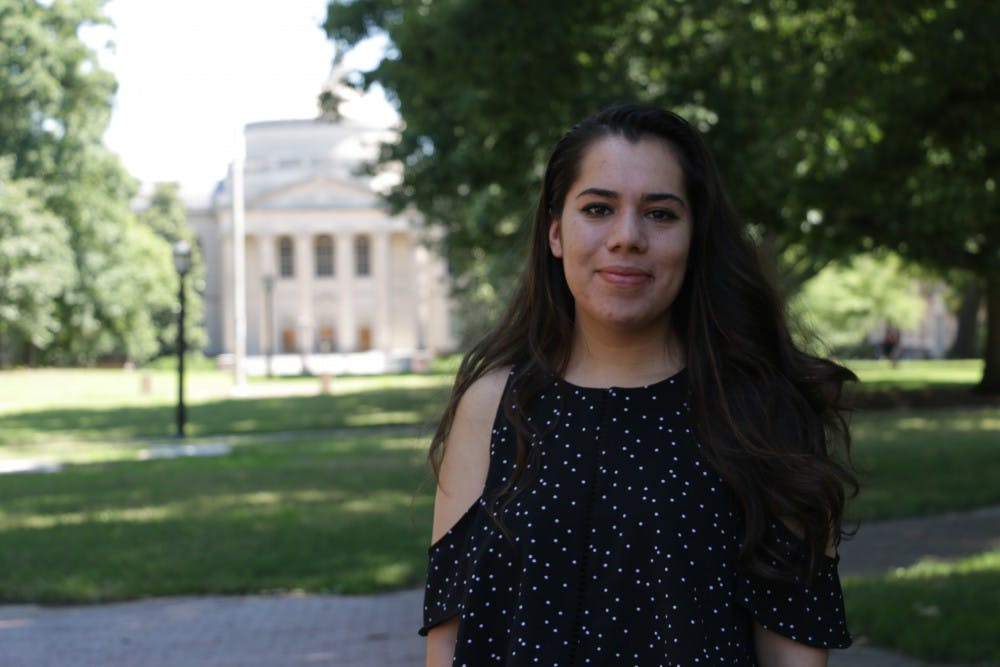Diana said her family called her dad’s lawyer. The secretary answered.
“We were like, ‘Hey, what’s going on? Why did my dad receive this?’” she said. “All the lawyer told my dad was, ‘You’re illegal. I can’t do anything to help you.’ We were like, ‘What the heck? We’ve paid you so much money and you tell us that you can’t do anything to help my dad?’”
After that, Diana went to Carolina Student Legal Services and eventually got in contact with Hatch Rockers Immigration.
She said the Hatch Rockers attorney told her that the Florida lawyer was careless for letting her dad reapply for a stay of removal, because the standards are much higher under President Donald Trump. Her lawyer said her dad was not on U.S. Immigration and Customs Enforcement’s radar and shouldn’t have applied.
Kaci Bishop, a UNC law professor who practices immigration law, said the fear of deportation has increased since Trump became president.
“I don’t know if that’s translating into huge numbers practically, but it’s certainly translating into people being more afraid,” Bishop said.
Diana said she was upset with the Florida lawyer’s work.
“I was like, ‘Are you serious? You see how difficult the situation is with immigration, and you’re going to do this to people who are going to you for help and paying you money?’” she said.
Since then, Diana’s dad has gone to Hatch Rockers for legal advice. Her dad’s ICE check-in was originally scheduled for May 11, but it was moved to May 9, Diana’s sister’s birthday.
Diana said the immigration officers let her dad stay at home — instead of detaining him in jail until his reasonable fear interview — because it was his daughter’s birthday.
“What happened that day when our lawyer changed our date — that was a miracle from God,” she said.
For the time being, Diana’s father has a worker’s permit, but he is mandated to wear an ankle bracelet that tracks his location and not travel outside of North Carolina, South Carolina or Georgia without permission.
To get the day's news and headlines in your inbox each morning, sign up for our email newsletters.
Diana said she doesn’t know when the reasonable fear of persecution or torture interview with an asylum officer will be. If her dad is seen as having a reasonable fear of return, he will go to immigration court where a judge will decide if he’s granted refugee status.
“Our family is a big target of the cartels,” she said. “We’ve had several family members killed from cartels.”
Jessica Mencia, a junior public policy major and co-director of Students United for Immigrant Equality, said students with undocumented relatives live with anxiety that their family will be separated.
“I think there’s a misconception too that if you have kids here who are citizens and your parents are undocumented, they won’t deport you, but that’s actually not true at all,” she said.
Julia Mack, a Spanish professor, said many students in this situation are not used to thinking about their Latino/a identities, but now it’s the first thing on their mind.
“They’ve said to me, ‘I wake up in the morning and I wonder if mom and dad are still at home. When I go home after class this afternoon, I’m going to call home to see if my parents are still there,’” she said.
She also said students who have undocumented relatives are hard to identify because they are skilled at not letting their personal life interfere with school. But sometimes the stress is just too much.
“The fragility of their balance is clear when you, for example, have a student break out crying in the middle of class,” she said.
Mack said she wants all professors to understand how complex and challenging having undocumented relatives can be.
“You might have a student come up to you and say, ‘I’m going to be missing class next week because I need to take my grandmother to the doctor,’” Mack said. “Who would ask for an excuse for that? Clearly most students normally have that resolved. But what is happening is that this particular student might be the only with a driver’s license or might be the only one, who if they were stopped, might not suffer any consequences other than having to talk to a policeman. They are the only one in their family who can do this errand without danger.”
Mack said some students who are in the country legally because they are protected by Deferred Action for Childhood Arrivals — Obama’s executive order that gave qualifying undocumented children legal status — are worried that going to college could expose their undocumented family members.
Bishop said that ICE has never gotten undocumented family members’ names through FERPA records in the past. She said it is more likely that undocumented people would be discovered in other ways — like by driving without a license.
university@dailytarheel.com



